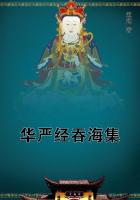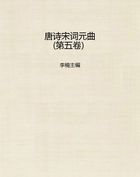The degradation of the European nobility caused, of course, the increase of the kingly power, and opened the way to central despotisms.The bourgeoisie, the commercial middle class, whatever were its virtues, its value, its real courage, were never able to stand alone against the kings.Their capital, being invested in trade, was necessarily subject to such sudden dangers from war, political change, bad seasons, and so forth, that its holders, however individually brave, were timid as a class.They could never hold out on strike against the governments, and had to submit to the powers that were, whatever they were, under penalty of ruin.
But on the Continent, and especially in France and Germany, unable to strengthen itself by intermarriage with the noblesse, they retained that timidity which is the fruit of the insecurity of trade; and had to submit to a more and more centralised despotism, and grow up as they could, in the face of exasperating hindrances to wealth, to education, to the possession, in many parts of France, of large landed estates; leaving the noblesse to decay in isolated uselessness and weakness, and in many cases debt and poverty.
The system--or rather anarchy--according to which France was governed during this transitional period, may be read in that work of M.de Tocqueville's which I have already quoted, and which is accessible to all classes, through Mr.H.Reeve's excellent translation.Every student of history is, of course, well acquainted with that book.But as there is reason to fear, from language which is becoming once more too common, both in speech and writing, that the general public either do not know it, or have not understood it, I shall take the liberty of quoting from it somewhat largely.I am justified in so doing by the fact that M.de Tocqueville's book is founded on researches into the French Archives, which have been made (as far as I am aware) only by him;and contains innumerable significant facts, which are to be found (as far as I am aware) in no other accessible work.
The French people--says M.de Tocqueville--made, in 1789, the greatest effort which was ever made by any nation to cut, so to speak, their destiny in halves, and to separate by an abyss that which they had heretofore been, from that which they sought to become hereafter.But he had long thought that they had succeeded in this singular attempt much less than was supposed abroad; and less than they had at first supposed themselves.He was convinced that they had unconsciously retained, from the former state of society, most of the sentiments, the habits, and even the opinions, by means of which they had effected the destruction of that state of things; and that, without intending it, they had used its remains to rebuild the edifice of modern society.This is his thesis, and this he proves, it seems to me, incontestably by documentary evidence.
Not only does he find habits which we suppose--or supposed till lately--to have died with the eighteenth century, still living and working, at least in France, in the nineteenth, but the new opinions which we look on usually as the special children of the nineteenth century, he shows to have been born in the eighteenth.France, he considers, is still at heart what the Ancien Regime made her.
He shows that the hatred of the ruling caste, the intense determination to gain and keep equality, even at the expense of liberty, had been long growing up, under those influences of which Ispoke in my first lecture.
He shows, moreover, that the acquiescence in a centralised administration; the expectation that the government should do everything for the people, and nothing for themselves; the consequent loss of local liberties, local peculiarities; the helplessness of the towns and the parishes: and all which issued in making Paris France, and subjecting the whole of a vast country to the arbitrary dictates of a knot of despots in the capital, was not the fruit of the Revolution, but of the Ancien Regime which preceded it; and that Robespierre and his "Comite de Salut Public," and commissioners sent forth to the four winds of heaven in bonnet rouge and carmagnole complete, to build up and pull down, according to their wicked will, were only handling, somewhat more roughly, the same wires which had been handled for several generations by the Comptroller-General and Council of State, with their provincial intendants.
"Do you know," said Law to the Marquis d'Argenson, "that this kingdom of France is governed by thirty intendants? You have neither parliament, nor estates, nor governors.It is upon thirty masters of request, despatched into the provinces, that their evil or their good, their fertility or their sterility, entirely depend."To do everything for the people, and let them do nothing for themselves--this was the Ancien Regime.To be more wise and more loving than Almighty God, who certainly does not do everything for the sons of men, but forces them to labour for themselves by bitter need, and after a most Spartan mode of education; who allows them to burn their hands as often as they are foolish enough to put them into the fire; and to be filled with the fruits of their own folly, even though the folly be one of necessary ignorance; treating them with that seeming neglect which is after all the most provident care, because by it alone can men be trained to experience, self-help, science, true humanity; and so become not tolerably harmless dolls, but men and women worthy of the name; with The reason firm, the temperate will, Endurance, foresight, strength, and skill;The perfect spirit, nobly planned To cheer, to counsel, and command.














